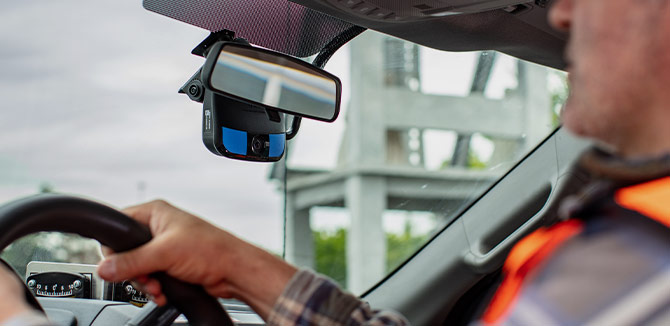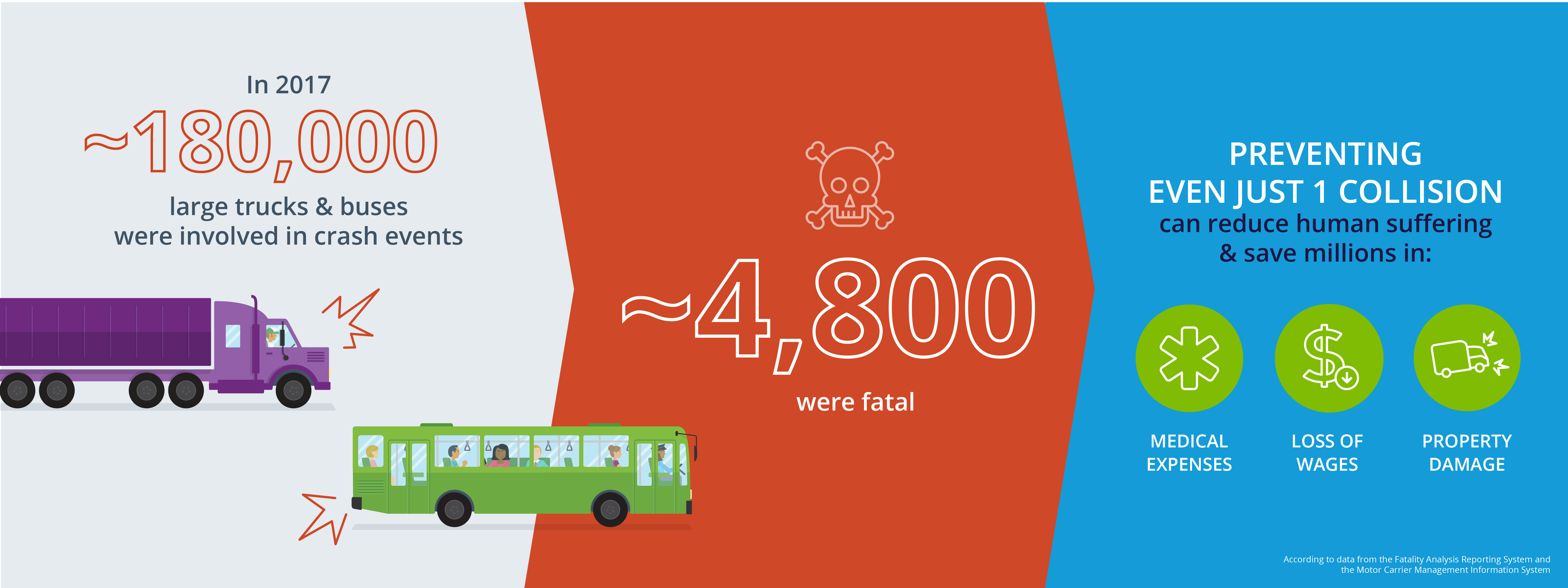Fleet Risk Management Solutions

The basics of fleet risk management solutions
Every human endeavor comes with risk. Managing that risk is a challenge for every organization, but it is especially critical for businesses involved in transportation. In addition to having to plan for natural disasters and mechanical failures that befall most other businesses, the transportation industry is also at the mercy of human behavior, with potentially devastating consequences including the loss of human life.
As a result, risk management solutions (RMS) often work hand in hand with truck fleet management efforts to minimize the probability of negative occurrences and protect both the organization’s financial health and the health of its drivers.
Fleet risk management solutions for transportation companies
For a business to operate efficiently, it must identify and then move to manage risks. These risks include:
- Physical risks - hazards such as fire, chemical spills or collisions with other motorists
- Location risks - possible hazards near the business, such as a river prone to flooding or bad stretches of road
- Human risks - issues with drugs and alcohol, drowsy and distracted driving, or employee theft, as well as illness
- Equipment risks - power outages, technology failures, engine breakdowns, or brake failure
- Strategic risks - risking company capital on improvements or investments that have the potential for loss as well as gain, such as a new fleet of trucks or in-cab technology
Finding solutions for these risks requires a risk assessment that is particular to a business. These assessments often look at four categories: risks that are likely to occur, have some chance of occurring, have a small chance of occurring, or have a minimal chance of occurring. For instance, a transportation business has a high risk of experiencing engine problems, but a tiny risk of their drivers getting hit by lightning. All risks can be managed, but obviously, some are more important to address than others.
The importance of effective fleet risk management services

According to the Fatality Analysis Reporting System and the Motor Carrier Management Information System, approximately 180,000 big trucks and buses were involved in crash events in 2017, and more than 4,800 of these vehicles were involved in fatal crashes. An effective fleet risk management system that can prevent even a single collision can significantly reduce human suffering, while potentially saving society millions of dollars in medical expenses, loss of wages, claims management, and property damage.
Truck drivers can only be responsible for their own driving, so fleet risk management in transportation focuses largely on improving their skills. A comprehensive large fleet risk management solution is especially crucial, since it’s easy to overlook key safety items when handling such a complex operation. With large fleet risk management, insurance costs can also be kept at a minimum.
Elements of fleet risk management solutions
Industry trends for motor fleet risk management include driver monitoring through RMS software. Video telematics systems, for instance, provide fleets with exception-based video that allows fleet managers to have the option to coach their drivers on safe driving behaviors when an event is recorded and reviewed. Lytx® video telematics solutions combine predictive analytics with video coaching to reduce collision risk before a driver is involved in an accident. Reducing collisions is the number one priority for many fleets and can help ensure the health and safety of all your drivers.
There is also technology to monitor driver speed and detect distracted or sleepy drivers, both via our fleet risk management app, both frequent contributors to accidents. Meanwhile, GPS fleet tracking lets management know exactly where their trucks are, which means a driver or vehicle in need can get quick help.
Of course, transportation is also highly regulated, so risk management also involves monitoring government regulatory compliance and maintaining proper paperwork. Companies like Lytx offer auditing for Driver-Vehicle Inspection Reports (DVIR), as well as hours of service management and driver qualification audits. All of these risk management solutions help keep trucks and cargo moving smoothly by reducing collisions, compliance violations, and missed deadlines.
How Lytx can help you with fleet risk management
Risk management should be a part of the operational planning process for any company, particularly transportation companies. Effective fleet risk management assumes that equipment and employee issues will occur and that companies are better off if they proactively take steps to protect themselves from adverse events such as technology failures, regulatory action, employee issues, and natural disasters. This means having the right insurance, emergency funds, and alternate business plans in place.
The transportation industry is particularly at risk. Fleet risk management services offer these companies the protection they need. In some cases, proactive training will help reduce the number of issues, such as accidents and driver error. Fleet risk management software can help businesses coach employees to follow safety practices.
Fleet risk management tools can also help monitor compliance paperwork to spot emerging problem areas and address them before they lead to fines and penalties. Life is risky for everyone, so planning for problems is the best way to survive them. Corporate risk management is an essential survival tool for everyone, but especially for transportation companies.
The best way to protect a company is by having a risk management plan for fleet safety operations. Contact a safety specialist today for an assessment of your fleet risk management policy and to start working on your solution.
